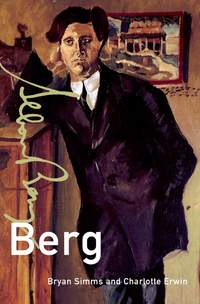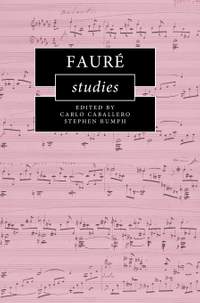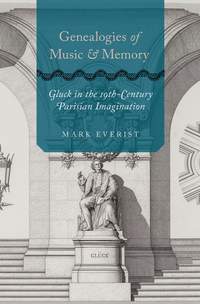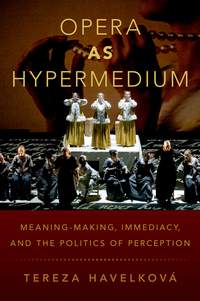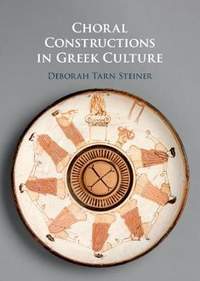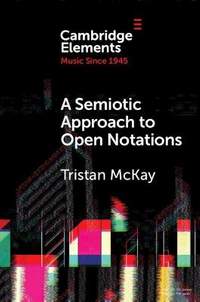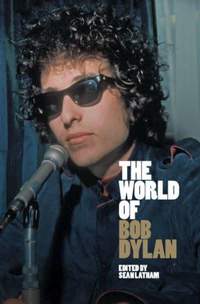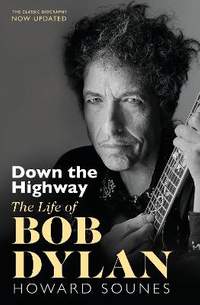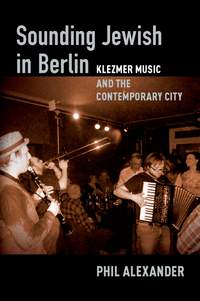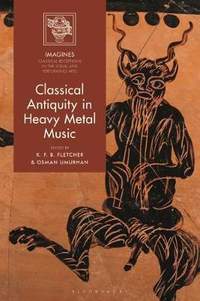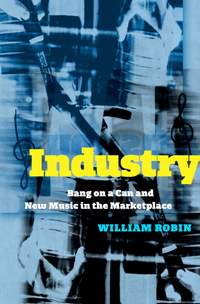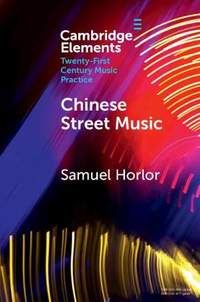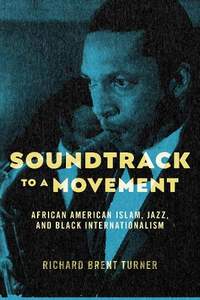New Publications,
New Music Book Publications - 3rd May 2021
 Welcome to our latest selection of new music books. Our picks this time round include books on composers including Alban Berg, Gabriel Fauré, and Christoph Willibald Gluck; a study of musical polystylism in the final decades of the Soviet Union; an exploration of choral singing in Ancient Greece; an examination of the ways in which Baroque composers notated tempos in their scores before the invention of the metronome; a discussion of Klezmer music in contemporary Berlin; the influence of Classical antiquity on heavy metal music; an account of Chinese street music and its impact on the local community; and several books celebrating the eightieth birthday of iconic musician, Bob Dylan.
Welcome to our latest selection of new music books. Our picks this time round include books on composers including Alban Berg, Gabriel Fauré, and Christoph Willibald Gluck; a study of musical polystylism in the final decades of the Soviet Union; an exploration of choral singing in Ancient Greece; an examination of the ways in which Baroque composers notated tempos in their scores before the invention of the metronome; a discussion of Klezmer music in contemporary Berlin; the influence of Classical antiquity on heavy metal music; an account of Chinese street music and its impact on the local community; and several books celebrating the eightieth birthday of iconic musician, Bob Dylan.
Classical Composers & Genres
Alban Berg, one of the most prominent composers of the Second Viennese School, is counted among the pioneers of twelve-tone serialism. This new study delivers a fresh perspective formed from a comprehensive study of primary sources that reveal the forces that shaped Berg's personality, career, and artistic outlook. Furthermore, it presents insightful analysis of all of Berg's major works, bringing into play Berg's own analyses of his music, many of which have not been considered in existing scholarship.
Available Format: Book
This book showcases new research into this influential French composer, featuring interpretations of individual works and musical analyses, as well as studies of compositional pedagogy, social history, and aesthetics. Accessible to a wide range of readers, this volume also provides a valuable overview of Fauré research from the composer's lifetime to the present.
Available Format: Book
Genealogies of Music and Memory: Gluck in the 19th-Century Parisian Imagination
Mark Everist; Oxford University Press; Hardback
The history of music is often written as a sequence of composers and works. But a richer understanding may be obtained by also considering the afterlives of a composer's works. This book asks how the stage works of Gluck were performed in nineteenth-century Paris. Coupled to questions of music publication, pedagogy, and the institutional status of the composer, it reveals a wide range of individual agents active in the promotion of Gluck's music for the Parisian stage.
Available Format: Book
Sonic Overload: Alfred Schnittke, Valentin Silvestrov, and Polystylism in the Late USSR
Peter J. Schmelz; Oxford University Press; Hardback
This book offers a music-centered cultural history of the Soviet Union, focusing on polystylism. It traces the ways in which leading composers Alfred Schnittke and Valentin Silvestrov initially embraced popular sources before ultimately rejecting them. Based on archival research, oral historical interviews, and other overlooked primary materials, as well as close listening and thorough examination of scores and recordings, it presents a multi-layered and comprehensive portrait of late-Soviet polystylism.
Available Format: Book
Opera as Hypermedium: Meaning-Making, Immediacy, and the Politics of Perception
Tereza Havelkova; Oxford University Press; Hardback
Drawing on the concept of hypermediacy from media studies, this book situates opera within the larger context of contemporary media practices, particularly those that play up the multiplicity, awareness and enjoyment of media. The discussion pertains to contemporary pieces such as Louis Andriessen and Peter Greenaway's Rosa and Writing to Vermeer, as well as productions of the canonical repertory such as Wagner's Ring Cycle by Robert Lepage at the Met and La Fura dels Baus in Valencia.
Available Format: Book
Choral Constructions in Greek Culture: The Idea of the Chorus in the Poetry, Art and Social Practices of the Archaic and Early Classical Period
Deborah Tarn Steiner; Cambridge University Press; Hardback
Why did the Greeks of the archaic and early Classical period join in choruses that sang and danced on public and private occasions? This book explores representations of chorality in the poetry, art and material remains of early Greece in order to demonstrate the centrality of the activity in the social, religious and technological practices of individuals and communities.
Available Format: Book
A Semiotic Approach to Open Notations: Ambiguity as Opportunity
Tristan McKay; Cambridge University Press; Paperback
Along with developments in playing techniques and technologies, the notations employed by composers have also changed. Composers of what Umberto Eco calls 'open works' often employ ambiguous music notations. These notations ask the performer to play a radical and active role in co-creating the musical work. This book considers intersections of ambiguity, authority, and identity in works with open notations, with in-depth analyses of works by Earle Brown, Will Redman, and Leah Asher.
Available Format: Book
Tempo and Tactus in the German Baroque - Treatises, Scores, and the Performance of Organ Music
Julia Dokter; Boydell & Brewer; Hardback
Before the advent of the metronome, there was little in the way of a standardised method for precisely communicating how fast music should be performed. Baroque musicians developed notational cues for relative speed, primarily through combinations of time signatures and note values. This book helps to decode these cues, investigating metric theory in music treatises from roughly 1600 to 1790, and exploring the scores of pivotal composers such as J.S. Bach, Buxtehude, and Bruhns.
Available Format: Book
Rock, Popular, & World Music
Bob Dylan has helped transform music, literature, and even politics. This book chronicles a lifetime of creative invention that has made a global impact. Leading rock and pop critics and music scholars address themes and topics central to Dylan's life and work: the blues, his religious faith, civil rights, gender, race, and American and World literature, incorporating a rich array of new material from never-before-accessed archives.
Available Format: Book
Bob Dylan was the first figure in the history of popular music to challenge the domination of the three-minute pop song and to bring serious ideas and poetry into the song lyric. A true revolutionary, he was also the first pop performer to adopt the attitudes and lead the life of a bohemian artist. This updated edition includes a new chapter that brings the legend's life story right up to date, covering the last ten years of Dylan's life, and the last (and previously unpublished) interview with Dylan's first serious girlfriend.
Available Format: Book
Sounding Jewish in Berlin: Klezmer Music and the Contemporary City
Phil Alexander; Oxford University Press; Hardback
This book explores the dialogue between Berlin's contemporary klezmer scene and the street-level creativity that has become a hallmark of its decidedly modern urbanity and cosmopolitanism, shedding light on how this Eastern European Jewish folk music has become not just a product but also a producer of Berlin. This engaging study brings together ethnomusicology, cultural studies, and urban geography to evoke the sounds, atmospheres, and performance spaces through which klezmer musicians have built a lively set of networks in the city.
Available Format: Book
Classical Antiquity in Heavy Metal Music
K. F. B. Fletcher & Osman Umurhan (editors); Bloomsbury; Paperback
Examining bands from across the globe, this book demonstrates the varied ways in which heavy metal music draws on the ancient Greek and Roman world, taking inspiration from Classical literature and mythology such as the Homeric Hymns, Virgil's Aeneid, and Caesar's Gallic Wars, historical figures from Rome and ancient Egypt, and even pagan and occult aspects of antiquity. It argues that the engagement with myth and history is a defining characteristic of heavy metal music.
Available Format: Book
Industry: Bang on a Can and New Music in the Marketplace
William Robin; Oxford University Press; Hardback
Amidst the heated fray of the Culture Wars emerged a scrappy festival in downtown New York City called Bang on a Can, presenting eclectic, irreverent marathons of experimental music in crumbling venues on the Lower East Side. Through the 1980s and 1990s, three visionary composers - David Lang, Michael Gordon, and Julia Wolfe - nurtured the festival into a multifaceted organisation with a major record deal, and in the process changed the landscape of avant-garde music in the United States.
Available Format: Book
Chinese Street Music: Complicating Musical Community
Samuel Horlor; Cambridge University Press; Paperback
The daily singing of Chinese pop classics in parks and on street corners in the city of Wuhan inspires modest outward signs of engagement, guided by apparently individualistic concerns rather than a sense of group belonging. This book addresses the concept of community as an entity to which people belong, and as an association between people and the wider street music environment.
Available Format: Book
Soundtrack to a Movement: African American Islam, Jazz, and Black Internationalism
Richard Brent Turner; New York University Press; Paperback
This book examines the link between the revolutionary Black Islam of the post-WWII generation and jazz music, arguing that from the late 1940s and '50s though the 1970s, Islam rose in prominence among African Americans in part because of the embrace of the religion among jazz musicians. It demonstrates that the values that Islam and jazz shared - Black affirmation, freedom, and self-determination - were key to the growth of African American Islamic communities, and that it was jazz musicians who led the way in shaping encounters with Islam.
Available Format: Book


